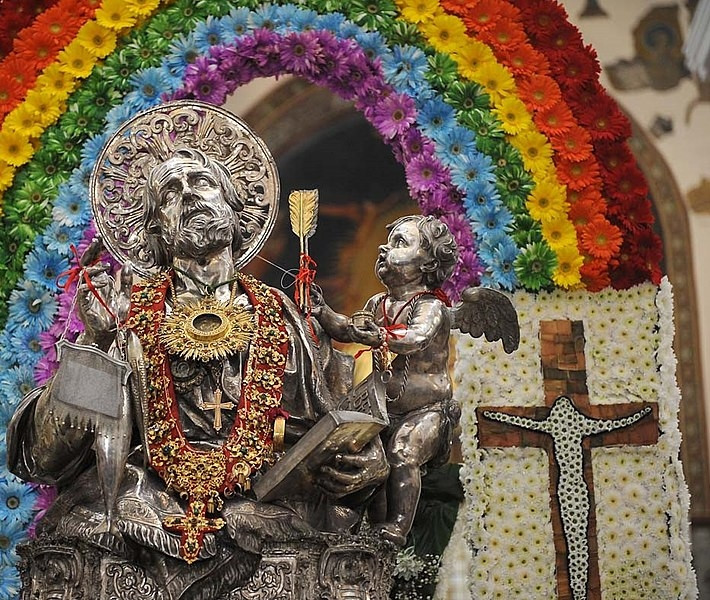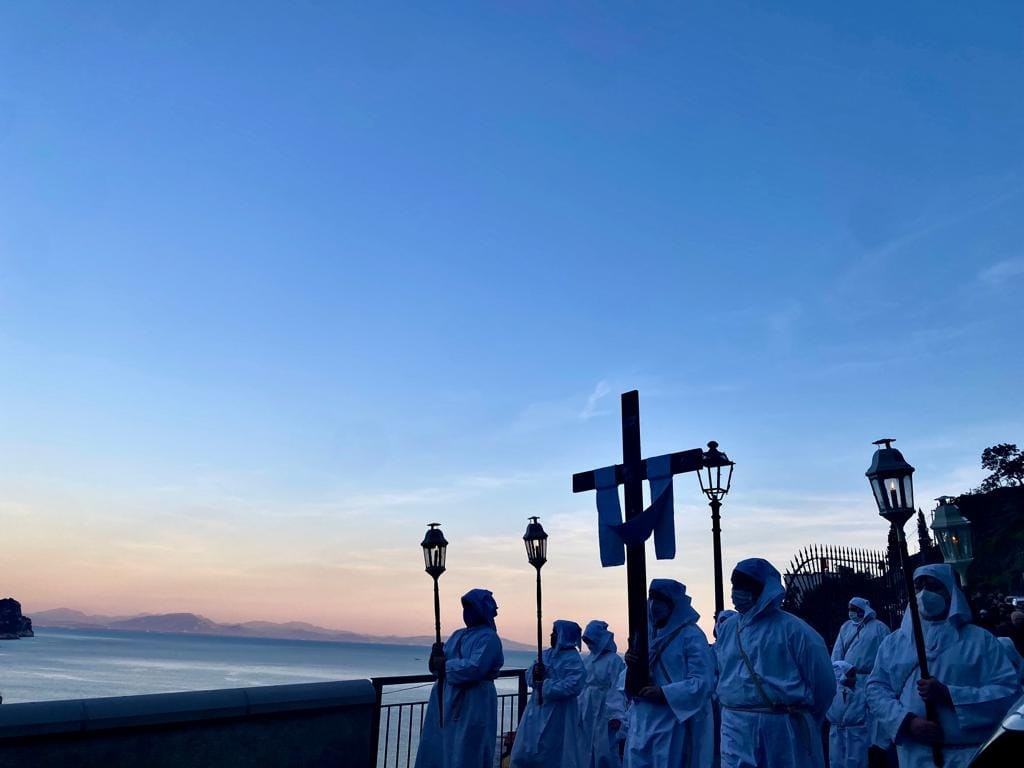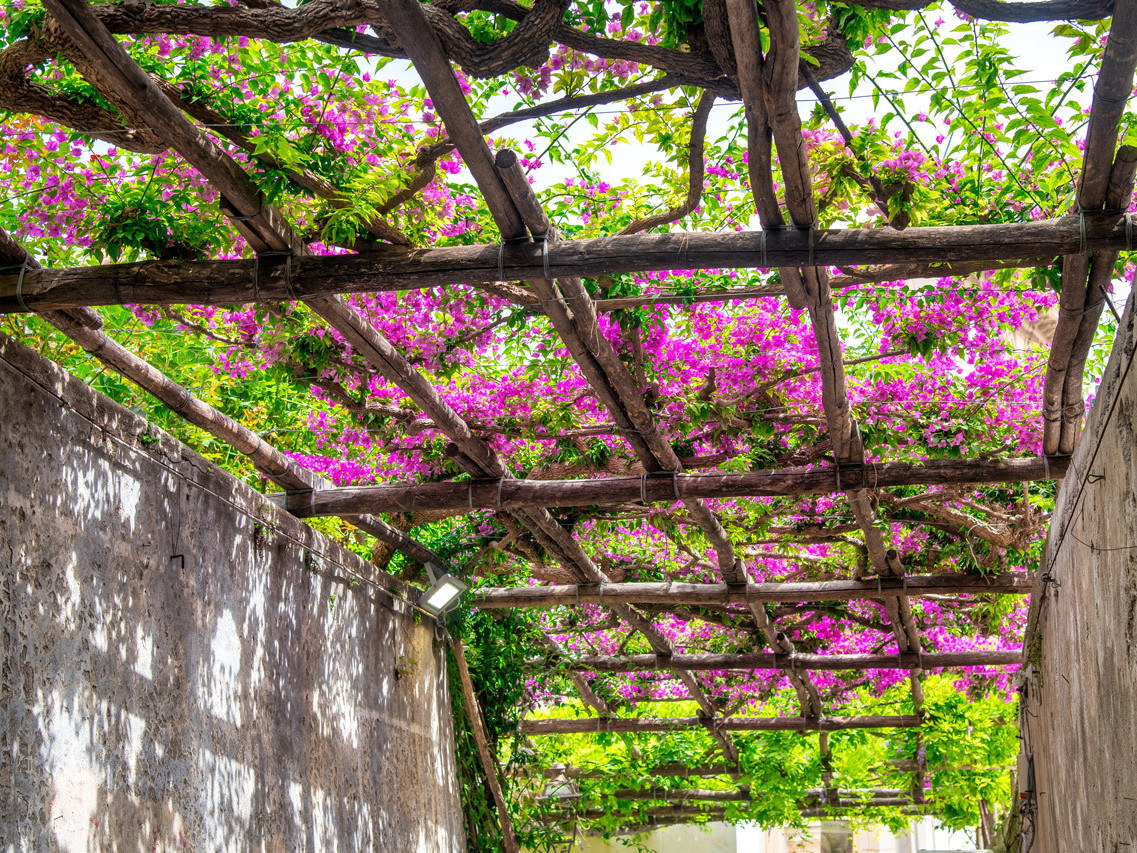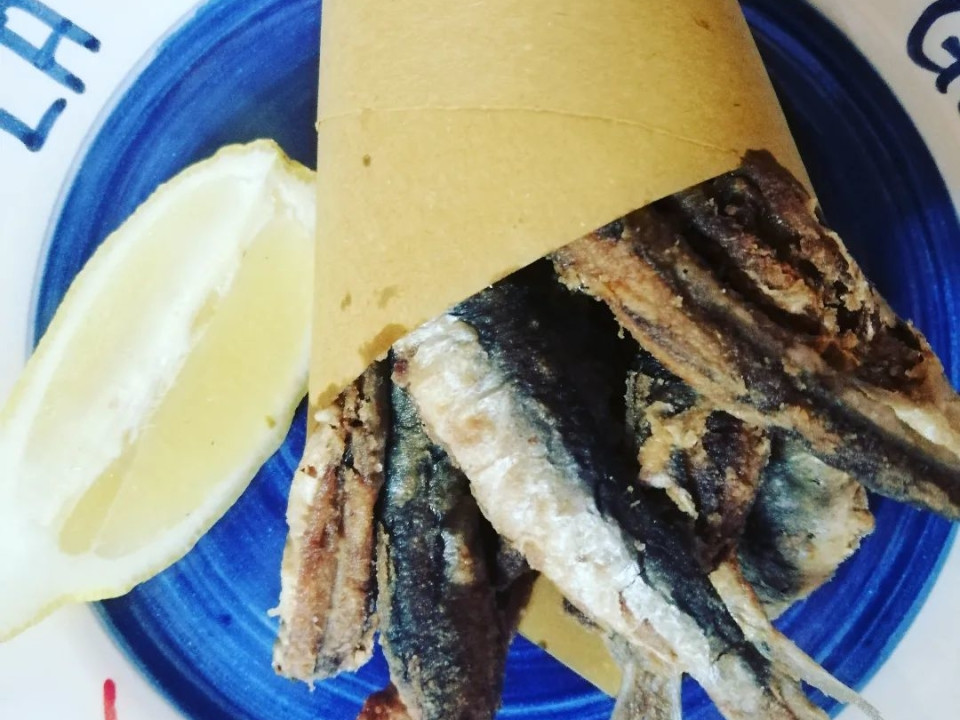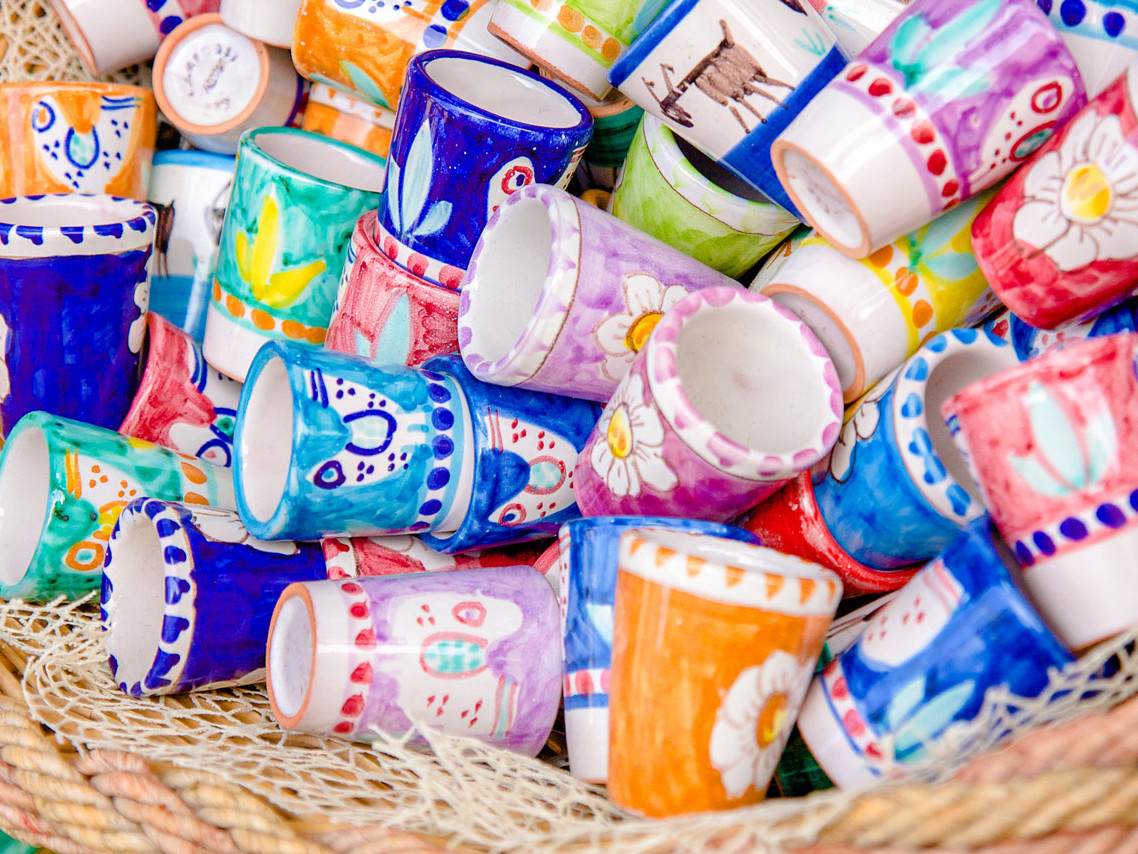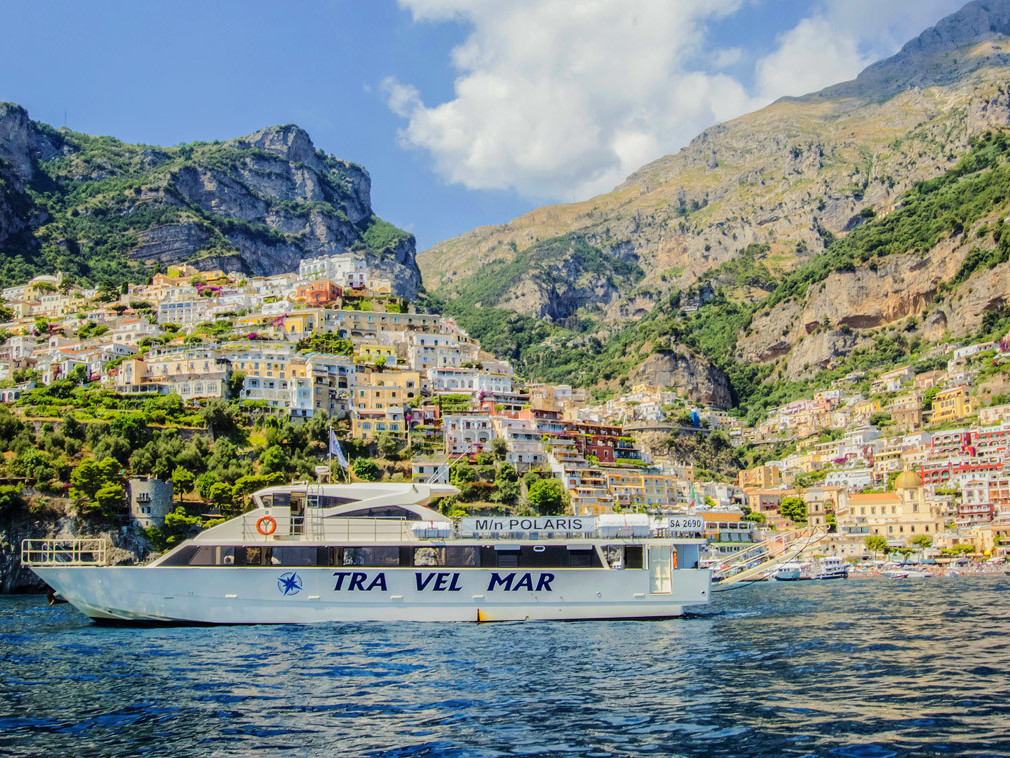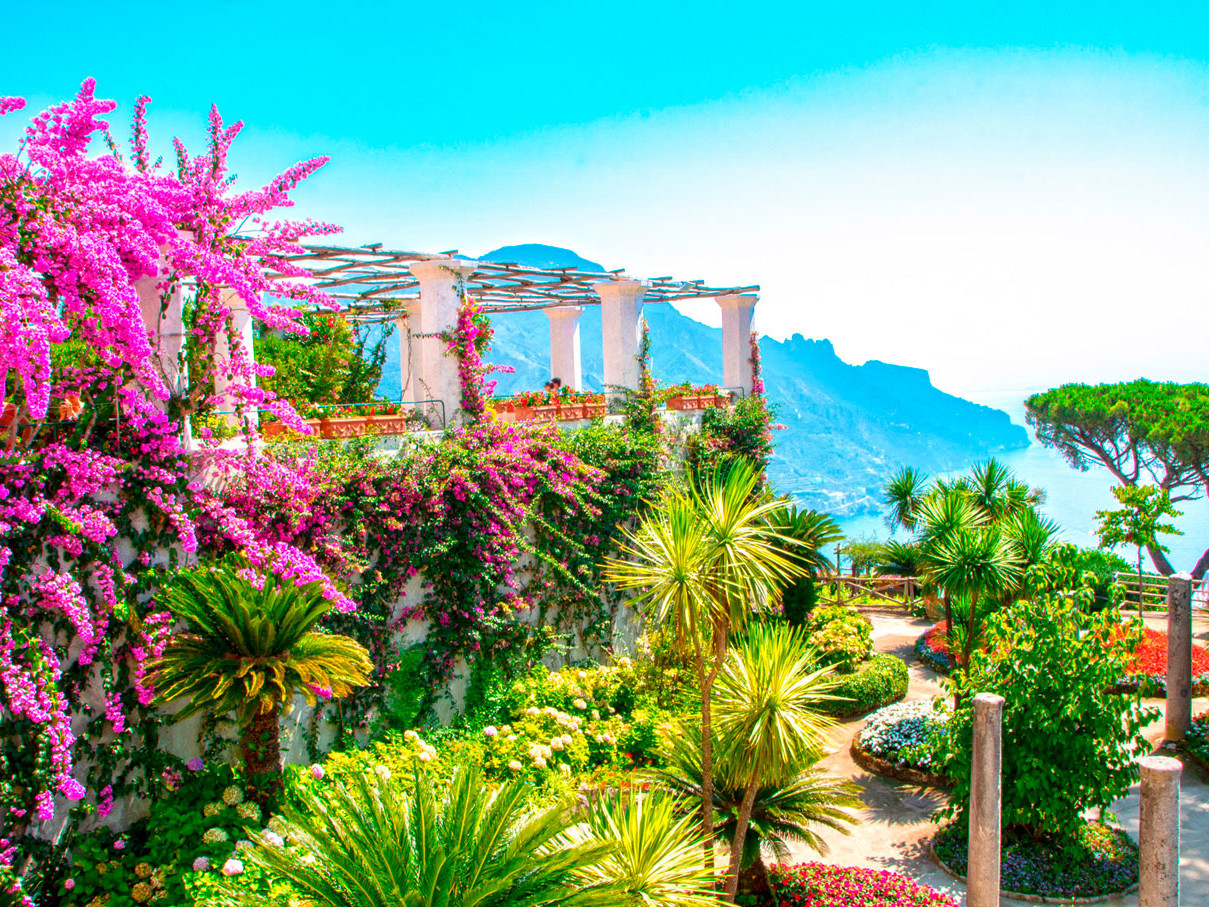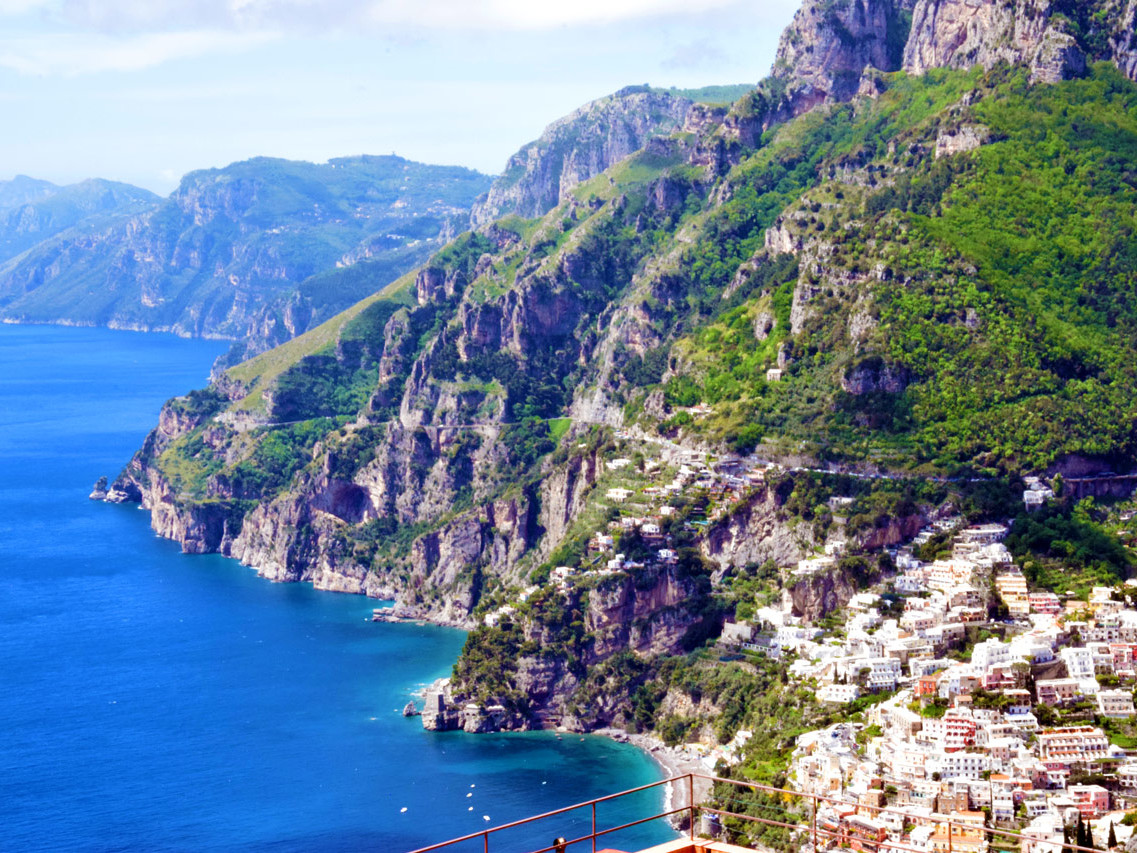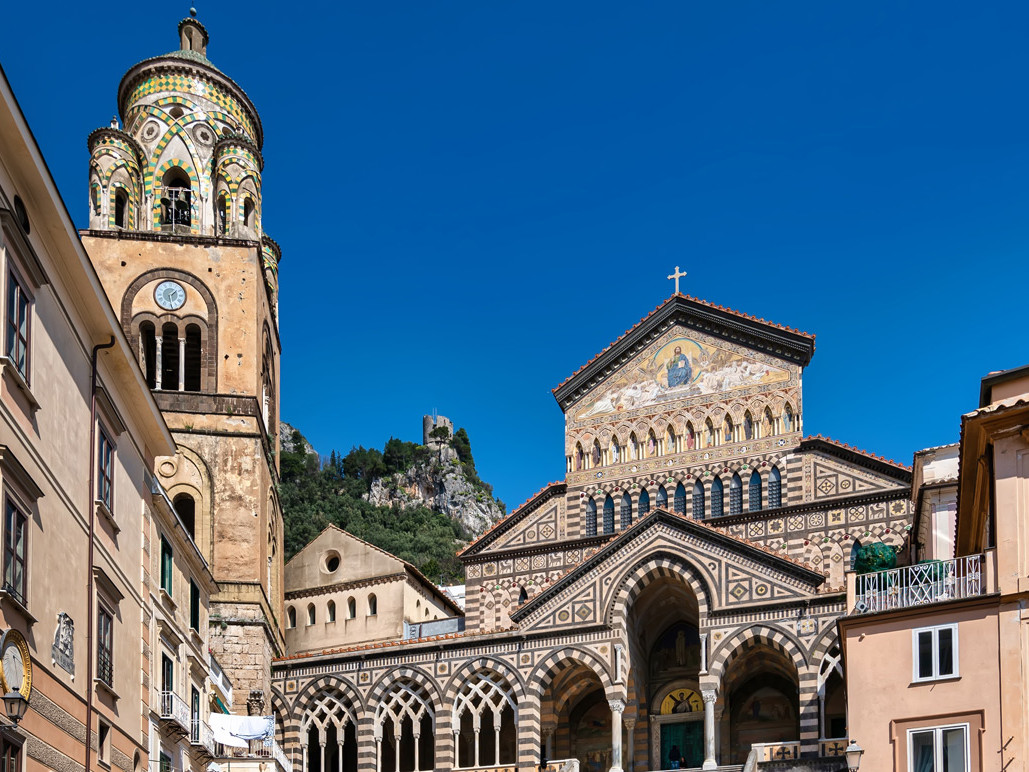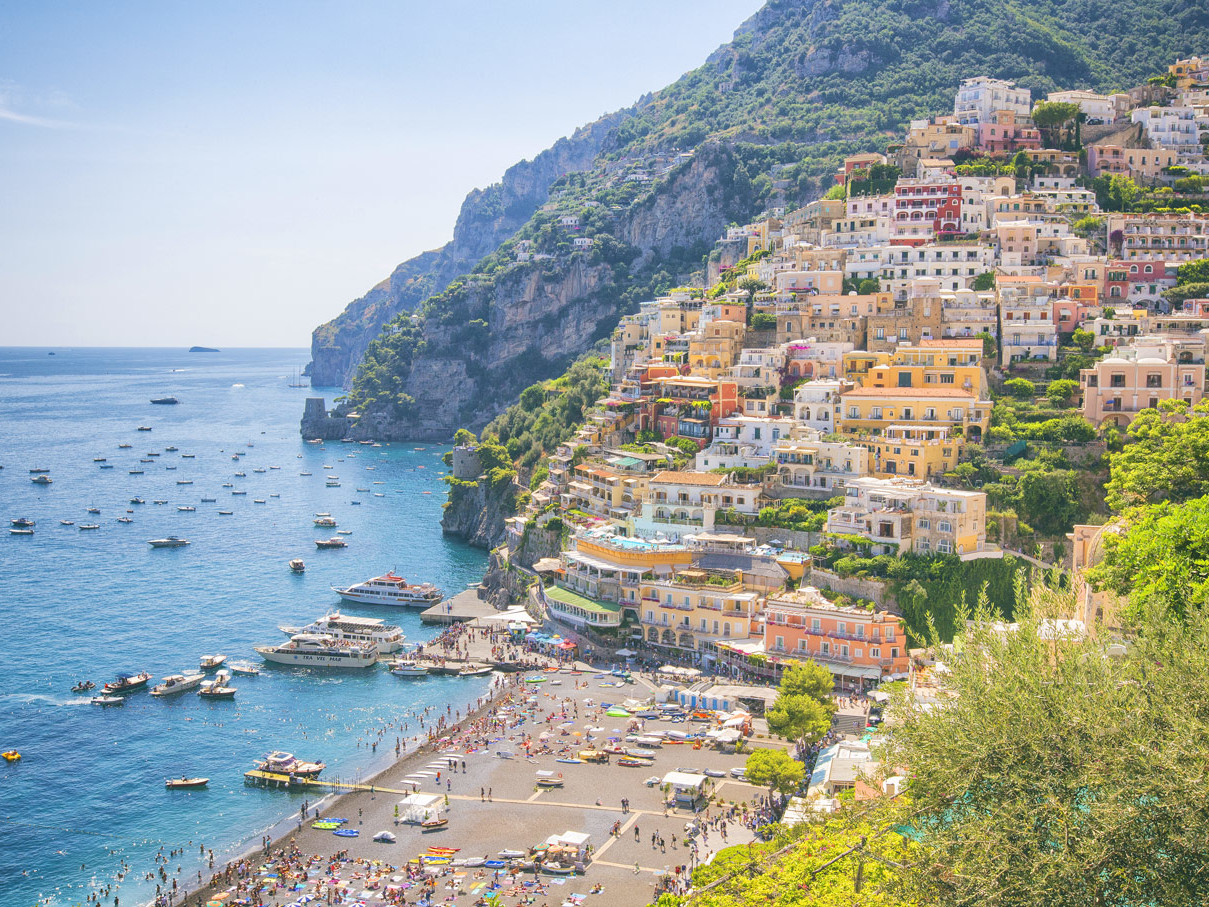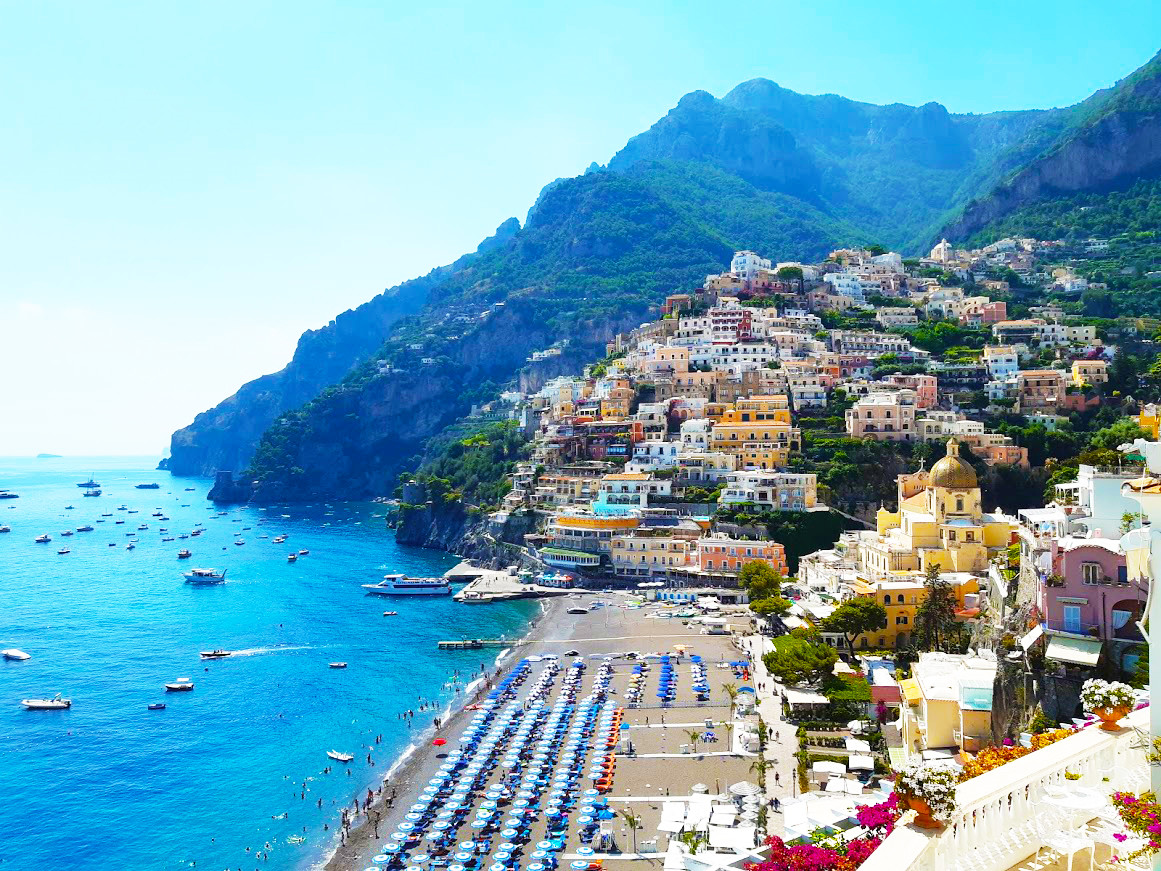THE FEAST OF SAINT MATTHEW IN SALERNO: THE END OF SUMMER AMONG GASTRONOMIC TRADITION AND MYSTICISM
The feast of San Matteo is the last major event of the period that celebrates the patron of the city and marks the end of the Salerno summer.
by Barbara Iovine
Saint Matthew’s feast is a significant event for the local religious tradition that involves not only the faithful but also tourists who take part in the celebrations by attending the procession and tasting typical dishes, such as the padded spleen. The celebration of this rite takes place twice a year: on May 6 and September 21, and on both occasions the people of Salerno manifest a sense of belonging to their beautiful city. It is a very strong link with their past, a story that encompasses mysticism and tradition.
share this article
Salerno seen from above
The history that binds Salerno to San Matteo
In previous years, May 6 was remembered for the arrival of the saint's relics in the city: a very important day for the city of Salerno. On the occasion of this anniversary, an evocative procession was celebrated between the night of the 5th and the 6th, during which large flower trophies, depicting the symbols of the various local churches, were brought to the Cathedral with the tolling of the bells in the background. The legend that St. Matthew saved the city from the threatening raid of the Saracen ships in 1544 is also linked to the history of the patron saint. On that occasion the frightened Salerno sought solace in the Cathedral, praying for a miracle, so suddenly the clear sky became clear, unleashing a strong storm that sank the ships that approached threateningly: the patron had arrived to rescue the city. Even today there are curious atmospheric changes during the feast of September 21, in fact, if the sky seems dark, with threats of rain, at the exact time of the procession it always clears up!
When and how is the Saint celebrated?
The actual patronal feast is September 21, the day of the anniversary of the death of St. Matthew, as well as the real fulcrum of the celebration: it is precisely on this date that the long-awaited procession involving the whole population takes place. The preparation for this event is deeply felt, so much so that a month before, on August 21, there is "la calata del panno", the raising of the cloth, that determines the start of the ceremony: a rag with the image of the Saint is exposed with the words "Salerno is mine: I defend it" written on it. In September, the event starts with the three statues of the Saints Martyrs of Salernitani (Anthes, Gaius, and Fortunato), followed by the statue of San Gregorio VII, and immediately after the wooden bust of San Giuseppe, transported by the porters of the market area, called "paranza". Finally, the port workers arrive with the magnificent silver statue of San Matteo on their shoulders, decorated with beautiful flowers. During the parade, there will be various stops: the first for the blessing of the Bishop at the headquarters of the Guard of Finance, of which St. Matthew is the national patron, then the more particular one in front of the sea: the Saint is in fact also the protector of fishermen! One last stop is in the atrium of the Municipality, before the very particular final race to the Duomo when the porters express all the pride of their task.
Saint Matthew's statue. Source: Wikipedia
The patron's feast
Like any self-respecting feast, there is no shortage of attractions! In fact, the typical stands and stalls are installed on the seafront, offering the best local delicacies: "Mulignane spaccate" (cutted eggplants), fried peppers or with tomato, stuffed peppers, fried cuoppo, various pancakes, and the typical dish of this feast, the padded spleen with parsley, garlic, and mint, cooked in vinegar with red chili. The recipe of the latter is handed down from generation to generation and has a unique flavor that alternates the acid notes given by the vinegar with the intense taste of the entrails flavored with a mixture of aromas.
To conclude the celebrations, at the stroke of midnight, there is finally the suggestive fireworks display on the sea.
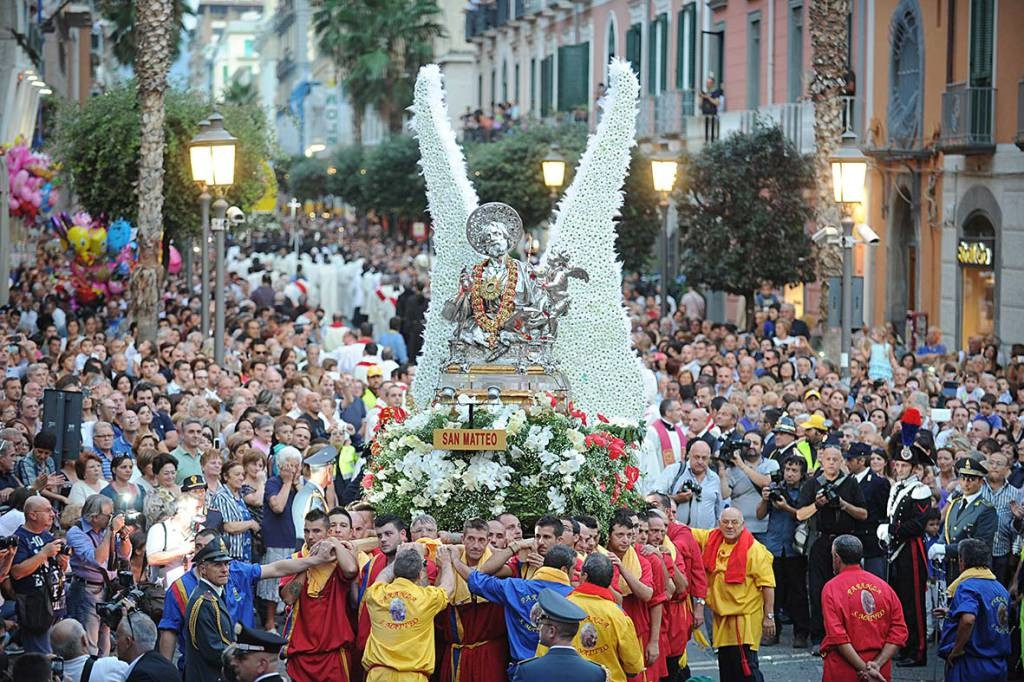
The procession. Ph by positanonews
share this article
- Although it has been partially restored, the celebration of May 6 no longer has the echo it once did.
- Anthes, Gaius, and Fortunato are nicely defined by the people as the "three sisters" of San Matteo for their sweet features and long hair.
- The role of the porter during the procession in honor of San Matteo is privileged: it is conferred by merit or handed down over the years, from generation to generation.


